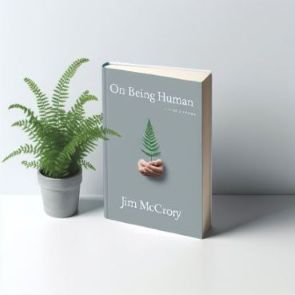"Dragonfly catcher,
how far have you gone today
in your wandering?"

Image generated with the assistance of Microsoft Copilot
Chiyo-ni's haiku about a child catching dragonflies isn't just an image of playful innocence; it also captures a poignant moment tinged with personal loss. This poem opens a window into the delicate balance between the fleeting and the eternal, a theme deeply embedded in the tradition of haiku. Such poems, often rooted in the cycles of nature, serve as a lens through which we view life's ephemeral beauty and inevitable decline.
Matsuo Bashō, in his final haiku, writes from a place of illness and contemplation:
"On a journey, ill,
my dream goes wandering
over withered fields."
Here, Bashō contemplates the end of life with a serene acceptance, portraying his spirit's journey across a landscape both literal and metaphorical. His "withered fields" not only signify the end of life's Vigor but also suggest a passage into a new form of existence, a theme that resonates deeply with those of us contemplating what lies beyond this earthly sojourn.
Yosa Buson's reflection on mortality is juxtaposed against a backdrop of natural beauty:
"The end of it all,
and weeping, in the midst of
the flowers blooming."
Buson captures the paradox of experiencing grief amidst life’s ongoing beauty, emphasizing the profound sadness of loss alongside the persistence of life's cycles. This tension between joy and sorrow, creation and decay, challenges us to find meaning and perhaps hope in the enduring rhythms of nature.
Kobayashi Issa, who experienced significant personal tragedy, often explored the fragility of existence:
"This world of dew
is a world of dew—
and yet, and yet..."
Issa's repeated "and yet" serves as a powerful counter to the acceptance of life's transience. It suggests a defiance or a hope beyond the apparent finality of the "dew," a metaphor for the fleeting moments of life.
Santōka Taneda’s haiku reflects a meditative acceptance of life’s offerings:
"My begging bowl—
accepts the falling leaves
of this life."
"Truly, truly, I say to you that an hour is coming, and now is,
when the dead will hear the voice of the Son of God,
and those having heard will live.
John 5:28,20. BSB.